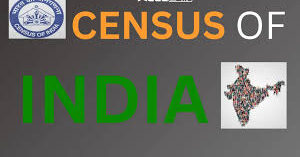India to Begin Census from 2025: Key Details
Introduction to the 2025 Census
The Government of India has announced that the next national census will commence in 2025. This census is pivotal as it is conducted every ten years and serves as a critical tool for governance, policy-making, and resource allocation. The census aims to provide a comprehensive overview of the demographic changes in the country, which is essential for planning and development at various levels.
Significance of the Census
The upcoming census will collect detailed information on the population, including age, sex, occupation, literacy rates, and migration patterns. This data will play a crucial role in various sectors, including healthcare, education, and infrastructure. Furthermore, accurate census data is vital for the allocation of seats in the Lok Sabha and state assemblies, ensuring fair representation in the democratic process.
Methodology and Technology Integration
The 2025 census will utilize advanced technology to ensure accuracy and efficiency. The government plans to employ digital methods for data collection, including the use of mobile applications and online forms. This shift towards technology is expected to streamline the process, making it more accessible and less time-consuming for citizens to participate.
Challenges and Concerns
Despite the technological advancements, challenges remain. Ensuring public participation is crucial, as previous censuses have faced issues with data accuracy and inclusiveness. The government is tasked with addressing these concerns to ensure that all communities are adequately represented. Moreover, maintaining data privacy and security will be paramount to build trust among citizens.
Conclusion: A Step Towards Progress
The 2025 census is not just a mere count of people; it is a foundational exercise that will shape India’s future. By understanding the demographics of the nation, the government can make informed decisions that cater to the needs of its citizens. As India prepares for this significant event, it is imperative for all stakeholders to collaborate effectively to ensure a successful census.

Why This News is Important
Democratic Representation
The census plays a vital role in ensuring democratic representation in the country. By providing accurate demographic data, it helps in the fair allocation of seats in the Lok Sabha and state assemblies. This representation is essential for addressing the needs of various communities effectively.
Resource Allocation and Development
Accurate census data is crucial for planning and resource allocation. It informs government policies regarding healthcare, education, infrastructure, and social welfare programs. Understanding population dynamics helps the government allocate resources more effectively, improving the quality of life for citizens.
Economic Planning
The census data aids in economic planning by providing insights into workforce demographics, migration patterns, and literacy rates. This information is critical for formulating policies that promote economic growth and development, ensuring that the country can adapt to changing economic conditions.
Addressing Social Issues
The census serves as a foundation for identifying and addressing social issues such as poverty, inequality, and access to education. By understanding the demographics of vulnerable populations, the government can implement targeted interventions to improve social equity.
Future Readiness
As India progresses towards becoming a developed nation, the census will help identify emerging trends and challenges. This foresight will enable policymakers to create strategic plans that are proactive rather than reactive, ensuring the nation is prepared for future developments.
Historical Context
Background of Indian Censuses
India has conducted a census every ten years since 1871, with the first modern census held in 1881. This long-standing tradition has provided invaluable insights into the country’s demographic landscape, aiding in effective governance. The last census was conducted in 2011, and the data collected has been instrumental in shaping various policies and programs.
Significant Changes and Developments
Over the years, the methodology of the census has evolved significantly. The introduction of technology, such as digital data collection methods and the use of mobile applications, marks a transformative shift in how data is gathered. Additionally, the socio-political landscape of India has changed, leading to discussions around inclusivity and representation in the census.
Recent Delays and Challenges
The 2021 census was initially scheduled to take place but was postponed due to the COVID-19 pandemic. This delay raised concerns about data accuracy and the impact of changing demographics. The decision to conduct the next census in 2025 aims to address these challenges while ensuring comprehensive data collection.
Key Takeaways from “India to Begin Census from 2025”
| Serial Number | Key Takeaway |
|---|---|
| 1 | The next national census will commence in 2025. |
| 2 | The census is crucial for democratic representation and resource allocation. |
| 3 | Advanced technology will be utilized for efficient data collection. |
| 4 | Ensuring public participation and data privacy is essential for a successful census. |
| 5 | Historical context shows that India has conducted censuses since 1881, evolving in methodology over time. |
Important FAQs for Students from this News
Q1: What is the purpose of the census in India?
A: The census aims to collect comprehensive demographic data that helps in governance, resource allocation, and policy-making, ensuring fair representation in the democratic process.
Q2: When will the next census take place?
A: The next national census in India is scheduled to begin in 2025.
Q3: How often is the census conducted in India?
A: The census is conducted every ten years in India.
Q4: What advancements are being made in the upcoming census?
A: The 2025 census will utilize advanced technology, including mobile applications and online forms, for efficient and accurate data collection.
Q5: Why was the previous census postponed?
A: The 2021 census was postponed due to the COVID-19 pandemic.
Some Important Current Affairs Links


















